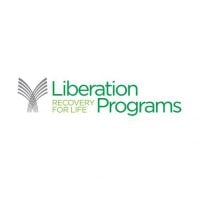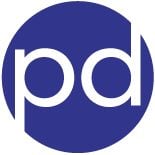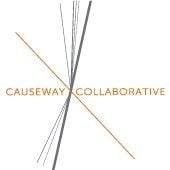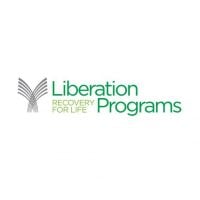Connecticut Counseling Centers - Norwalk
Drug Rehab Center in Norwalk, Connecticut
Connecticut Counseling Centers - Norwalk provides comprehensive evidence-based care for substance use disorders, mental health disorders, and co-occurring disorders, with a mission to deliver integrated care and services to restore well-being for each patient and their families.
About Connecticut Counseling Centers - Norwalk in Connecticut
Connecticut Counseling Centers - Norwalk is a comprehensive treatment provider located in Norwalk, Connecticut. They provide comprehensive evidence-based care and treatment for substance use disorders, mental health disorders, and co-occurring substance use and mental health disorders. Their mission is to improve the health of individuals and their families through the delivery of integrated care and services aimed at restoring well-being of each person.
At Connecticut Counseling Centers - Norwalk, individuals and their families can receive a range of specialized services for addiction and substance abuse. These include interventions such as cognitive behavioral therapy, motivational interviewing, 12-step facilitation, relapse prevention, trauma-informed interventions, and solution-focused treatments. In addition to offering individual counseling, they offer family therapy and group sessions to provide support and guidance to those affected by addiction.
Connecticut Counseling Centers - Norwalk is accredited by the Commission on Accreditation of Rehabilitation Facilities (CARF). They are also certified to provide treatment services by the Connecticut Department of Mental Health & Addiction Services. Connecticut Counseling Centers - Norwalk is the recipient of the 2018 SAMHSA Behavioral Health Award of Excellence, which recognizes their commitment to providing evidenced-based and effective services to individuals and families. They also provide drug testing and evaluations, as well as a range of other services centered on health, wellness, and recovery.
Genders
Ages
Modality
Additional
Conditions and Issues Treated
Dual Diagnosis therapy is considered more successful than traditional rehab methods because it treats the addiction and the underlying mental health disorder simultaneously. This comprehensive approach gives Norwalk, CT patients the best chance for long-term recovery. If the patient does not receive treatment for both conditions, they are more likely to relapse.
Levels of Care Offered
This center offers a variety of custom treatment tailored to individual recovery. Currently available are Dual-Diagnosis, Outpatient, with additional therapies available as listed below.
Outpatient treatment consists of counseling and therapy sessions. The outpatient treatment process begins with the addict’s initial detox period, lasting about ten days. Outpatient treatment is used for those who are at moderate risk for “slipping back” into the addiction. It is also used for those who are not currently experiencing any side effects from withdrawal, can handle social pressure, have a stable living environment, and have a good support system.
Therapies & Programs
Individual Therapy is a crucial component of addiction recovery. Therapists work with patients to identify the root of their addiction and figure out how to better handle the issues that led to them using drugs. Individual Therapy is one on one sessions where people meet with their therapist. Individual therapy provides a safe space for people to open up and discuss personal and sensitive topics which they may not feel comfortable discussing in a group setting.
In this type of therapy, therapists can develop specific solutions for each patient, which helps speed up their recovery process. In addiction recovery, therapy is a crucial part. It allows patients to go deep into their core issues and discover how those problems can be better handled now. Therapy can be performed in individual sessions as well as group settings. In individual therapy for addiction, the patient meets with the therapist one-on-one to focus on the underlying issues of addiction and come up with solutions to prevent future abuse.
Addiction can take a heavy toll on relationships, damage the trust and intimacy that was once there. Couples therapy at Connecticut Counseling Centers - Norwalk helps to rebuild the trust and intimacy that has been damaged. An intimate relationship with a drug addict is not healthy for children or anyone in the family. Therapist help to rebalance family roles and create a healthier environment after rehab in Norwalk, CT.
Family therapy is a crucial part of drug treatment and getting sober. It is one of the most effective ways to help addicts stay on the path to long-term sobriety. One of the most important parts of family therapy is the relapse prevention plan. During treatment, therapists and doctors will often sit down with the addict and their family to develop a plan if the addict ever feels like they want to use again. This plan should involve steps the addict and family can take together to prevent them from relapsing in the future.
An addict’s family can play a vital part in helping them to avoid relapse because they can spot the warning signs and help them get back on track before it becomes too much of a problem. Family therapy is one of the most effective ways to help addicts stay on the path to long-term sobriety.
Group Therapy is employed by drug treatment centers like Connecticut Counseling Centers - Norwalk to provide the recovering addict with a platform to talk about their feelings and experiences. It also provides for an opportunity to learn from other addicts who have successfully overcome their addiction. It is recommended that all group members be recovering addicts for this type of therapy to work.
This type of therapy involves the use of a variety of therapeutic techniques to help addicts recover from past traumas that might have triggered their substance abuse. During these sessions, therapists will work with the addict to address painful memories and learn how to cope effectively with stressors as they arise.
During these types of sessions, therapists will typically focus on three main goals:
- Identifying and expressing painful emotions associated with past traumas.
- Reducing the effects of stress on an addict’s life by developing more effective coping mechanisms.
- Developing healthy ways of thinking about stressful situations that can help addicts avoid substance abuse issues in the future.
This type of therapy is typically used in conjunction with other types of addiction treatment services. By identifying and dealing with the root cause of addiction, most addicts can overcome their cravings and prevent relapse once they leave rehab.
Many different types of addiction treatment services exist to help addicts safely get sober, but it’s important for recovering individuals to find a therapist or support group that will help them address the root cause of their addiction.
Dialectical behavior therapy (DBT) is a type of cognitive behavioral therapy that is focused on helping those with problematic behaviors caused by intense emotions and thoughts control and regulate their emotions and behavior.
Dialectic Behavior Therapy is beneficial for:
- People who have chronic suicidal thoughts and behaviors
- People who have chronic drug cravings
- People who have difficulty establishing and maintaining personal relationships
- People who have a mental disorder such as Borderline Personality Disorder
- People who have experienced trauma in their life
Cognitive Behavioral Therapy (CBT) is an approach and method in psychotherapy. Connecticut Counseling Centers - Norwalk asks people to investigate how their thoughts, including habitual, harmful, and inaccurate ways of thinking, affect behaviors. CBT is based on the idea that rigid, inflexible ways of thinking cause people to have a limited ability to cope with stress, which leads to emotional distress.
Likewise, CBT helps people identify maladaptive behaviors and replace them with more positive behaviors. It makes you look at the way you perceive something and ask: Is this a realistic belief? CBT asks people to look at the role of behaviors and emotional responses and how they may be distressing in one’s life. The goal of CBT is to change the way people think and behave to achieve a more balanced, healthier lifestyle.
Moreover, CBT has been shown to reduce some types of anxiety disorders, depression, and symptoms related to thoughts or actions that are considered harmful.
Good nutrition can be difficult for people recovering from addiction because they may not feel like eating while they are experiencing the physical and emotional side effects of detoxing.
Nutrition therapy can help addicts in Connecticut in the following ways:
- Helps individuals to understand which foods promote good health and support recovery that will assist them during detox
- Provides guidance and education about how to maintain a nutritious diet so they can stay healthy during recovery
- Improves their overall health and well-being, which can reduce the severity of substance withdrawal symptoms.
Nicotine replacement therapy treats nicotine addiction using external sources of nicotine, such as patches or gum to substitute for nicotine. This allows people trying to quit smoking to get their desired dose of nicotine without actually having to smoke cigarettes. There are several different types of NRT devices on the market now, and it is important to talk to your doctor about the best kind for you.
Patient Experience
Experiential Therapy at Connecticut Counseling Centers - Norwalk
Experiential therapy at Connecticut Counseling Centers - Norwalk includes helping people work through emotional disorders by participating in events in real-time. It moves away from conventional talk therapy to discuss their concerns and emotions by making patients play roles or use props. It allows people to handle trauma and feelings healthily, reducing the need to resort to alcohol and substances in Norwalk, CT.
Payment Options Accepted
For specific insurance or payment methods please contact us.
Is your insurance accepted?
Ask an expert, call (888) 674-0062
Connecticut Counseling Centers Associated Centers
Discover treatment facilities under the same provider.
- Connecticut Counseling Centers - Brookside Clinic in Waterbury, CT
- Recovery Network Of Programs in Bridgeport, CT
- Recovery Network of Programs in Stratford, CT
- Recovery Network of Programs - New Prospects in Bridgeport, CT
- Connecticut Counseling Centers - Norwalk Clinic in Norwalk, CT
Learn More About Connecticut Counseling Centers Centers
Additional Details
Specifics, location, and helpful extra information.
Norwalk, Connecticut 6854 Phone Number(203) 838-6508 Meta DetailsUpdated November 25, 2023
Staff Verified
Connecticut Counseling Centers - Norwalk Patient Reviews
There are no reviews yet. Be the first one to write one.
Norwalk, Connecticut Addiction Information
Connecticut has a higher rate of substance abuse and addiction than the national average. The state ranks in the top 10 in the country for illicit drug dependence among those ages 18 to 25. In 2010, there were 9,211 people admitted to an alcohol treatment facility for alcohol abuse combined with a secondary drug. Connecticut ranked fifth in the United States of America for the number of fatalities involving drunk driving in 2014.
Norwalk, Connecticut has been one of the top ten cities for drug overdoses in Connecticut for several years. The majority of residents struggling with addiction in Norwalk are addicted to prescription drugs such as benzodiazepine or oxycodone. 10.8% of Norwalk underage residents misuse prescribed medications and 4.0% of high school students have used marijuana at least once. The drug rehab services available in Norwalk offer outpatient and inpatient rehab programs.
Treatment in Nearby Cities
- Windsor, CT (65.7 mi.)
- East Hartford, CT (62.1 mi.)
- Chester, CT (53.0 mi.)
- Bridgeport, CT (13.2 mi.)
- Milford, CT (20.6 mi.)
Centers near Connecticut Counseling Centers - Norwalk
The facility name, logo and brand are the property and registered trademarks of Connecticut Counseling Centers - Norwalk, and are being used for identification and informational purposes only. Use of these names, logos and brands shall not imply endorsement. RehabNow.org is not affiliated with or sponsored by Connecticut Counseling Centers - Norwalk.









